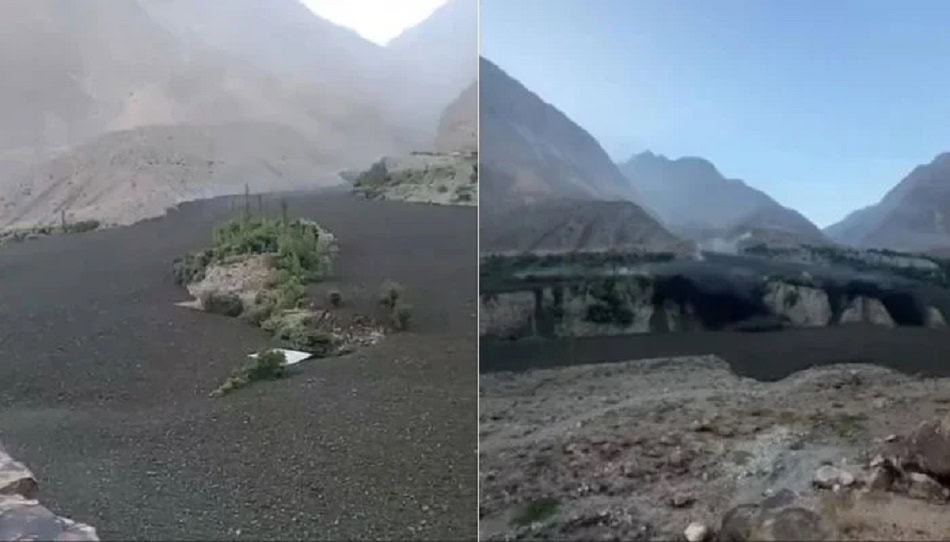In a major development for residents of Ghizer Valley, the Gilgit-Baltistan government has announced the commencement of spillway work at Raushan Lake starting Wednesday, September 30.
The move follows a high-level meeting chaired by the Secretaries of Home and Prisons, and Communications & Works GB, and comes as a relief to thousands cut off from the district headquarters Gahkuch due to a Glacial Lake Outburst Flood (GLOF) earlier this year.
READ MORE: Zero Markup Loan: Get Your Own Electric Bike or Rickshaw Today
The GLOF event had created a spillway from Raushan Lake that blocked the river flowing toward Gilgit, submerging roads, homes, and farmlands. The resulting damage disconnected entire communities and highlighted the growing threat of climate change in the fragile mountain region. Experts from WAPDA have since developed a technical plan to safely lower the water level and restore connectivity, which will now be implemented under the supervision of an execution committee led by the Commissioner of Gilgit Division.
Authorities have urged residents and travelers to cooperate during the execution phase. Movement on the Gilgit–Shandur Road (GSR) will be restricted during working hours, and No Objection Certificates (NOCs) will be required for passage. Residents in low-lying areas are advised to follow evacuation plans issued by their respective district administrations, while public awareness will be ensured through mosques, Jamaat Khanas, and Radio Pakistan Gilgit in local languages.
While immediate efforts focus on mitigation, officials and climate experts stress that the Raushan Lake incident is part of a broader pattern of glacial instability due to rising global temperatures. The spillway work is a welcome step—but also a stark reminder that climate resilience must become a long-term priority for Gilgit-Baltistan.









